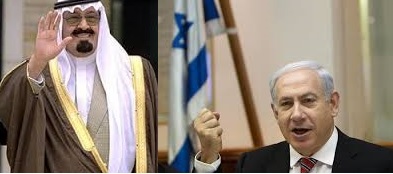The Israeli Mistress and the Saudis
4 November 2013
By Daniel Morillo
Washington DC- A quiet partnership is emerging in the Middle East that has the potential to alter the future of the region if their mistress-like relationship goes public. Israel and Saudi Arabia who have diametrically opposed political systems and ideologies are finding common ground in recent months as events throughout the region begin to challenge the status quo across the board. Surprisingly, the two main issue of accord between the Saudis and Israelis are also issues that put them at odds with their longtime ally, the United States of America. This hushed realization of mutual interests will most likely never evolve to an open friendship as long as the Palestinian issue goes unresolved but it does put the United States in an interesting position as its two major allies in the region begin to publically criticize US policy in the Middle East.
The Saudis and Israelis have been supportive of the opposition in Syria since the civil war broke out almost three years ago. Despite their outward differences, both oppose the Assad regime for the same fundamental reason: Iran. The Israelis view the Syrian regime as an extension of Iranian power and would benefit from the “de-Iranification” of Syria. The Saudis on the other hand view the Syria conflict through a more sectarian lens. They view the Assad regime to represent Iranian and Shi’a influence expanding in the Arab world, a perceived direct threat to Saudi Sunni power in the Middle East. Saudi minister of foreign affairs Saud AlFaisal went as far as calling the international community to declare Iran an occupying force in Syria during his press conference with US Secretary of State John Kerry in Riyadh early this week.
Both countries were extremely disappointed in the lack of US response to the chemical attacks of this past August. Their frustrations with the United States were compounded upon the announcement of nuclear talks with Iran, who they each identify as their greatest threat in the region.
The rather unprecedented divergence on major issues in the Middle East between the US and its two most trusted allies in the region points to an era of uncertainty for the future of the Middle East. The Syrian Civil War will eventually come to a close and there will be winners and losers across the board. If the Assad Regime comes out on top, surely the United States will be criticized by Saudi and Israel for not intervening militarily and blamed for letting an “Iranian-backed” dictator kill thousands of people and get away with it. At the same time, if an Iranian détente is realized, it puts the Saudis and Israelis in a very dangerous position that might push the two quiet lover’s affair out into the open.



Comments are closed.